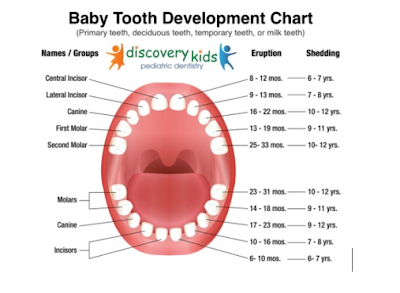CORONAVIRUS AND DENTISTRY
WHAT IS CORONAVIRUS?
Coronaviruses (CoV) are a large family of viruses that
cause illness ranging from the common cold to more severe diseases such as
Middle East Respiratory Syndrome (MERS-CoV) and Severe Acute Respiratory
Syndrome (SARS-CoV).
Coronavirus disease (COVID-19) is
a new strain that was discovered in 2019 and has not been previously identified
in humans. The new virus is dangerous - so far, around 20 per cent of confirmed
cases have been classed as severe or critical. So far, around 15 to 20 per cent
of hospital cases have been classed as "severe" and the current death
rate varies between 0.7 per cent and 3.4 per cent depending on the location
and, crucially, access to good hospital care.
This is much lower than fatality rates
for Mers (30 per cent) and Sars (10 per cent), but still a significant threat.
HOW DOES IT SPREAD?
Like cold and flu bugs, the virus is
spread via droplets when a person coughs or sneezes. The droplets land on
surfaces and are picked up on the hands of others and spread further. People
catch the virus when they touch their infected hands to their mouth, nose or
eyes.
WHAT ARE THE SYMPTOMS?
COVID-19 symptoms range from mild to severe.
It takes 2-14 days after exposure for symptoms to develop. Symptoms may
include:
·
Fever (The Centers for Disease Control
considers a person to have a fever when he or she has a measured temperature of
at least 100.4 °F [38 °C])
·
Cough
·
Shortness of breath
Those with weakened immune systems may
develop more serious symptoms, like pneumonia or bronchitis. You may never
develop symptoms after being exposed to COVID-19.
WHO declared COVID-19 a pandemic on March 11,
pointing to "alarming levels" of spread, severity and inaction
WHAT PRECAUTIONS SHOULD YOU TAKE?.
WHO and CDC recommend
following these precautions for avoiding COVID-19:
- Avoid large events and mass gatherings.
- Avoid close contact (about 6 feet) with
anyone who is sick or has symptoms.
- Keep distance between yourself and others
if COVID-19 is spreading in your community, especially if you have a
higher risk of serious illness.
- Wash your hands often with soap and water for at least 20 seconds, or use an alcohol-based hand sanitizer that contains at least 60% alcohol.
- Cover your mouth and nose with your elbow or a tissue when you cough or sneeze. Throw away the used tissue.
- Avoid touching your eyes, nose and mouth if your hands aren't clean.
- Clean and disinfect surfaces you often touch on a daily basis.
WHO also recommends these steps:
- Avoid eating raw or undercooked meat or animal organs.
- If you're visiting live markets in areas that have recently had new coronavirus cases, avoid contact with live animals and surfaces they may have touched.
HOW DOES THE CORONAVIRUS AFFECT YOUR DENTAL VISIT?
Dentists around the world have been advised
to stop all elective procedures by regulatory bodies.
Only emergency dental procedures will be
provided.
This is being done to safeguard the dentist,
the dental staff and most importantly the patient
Avoid visiting a dentist till it is
absolutely necessary such that there is no crowding in such places and social
distancing should be maintained.
The dental drill when used causes the
production of aerosols. The virus may thus remain suspended in air. Also the
saliva or blood may splatter and land on surfaces where it may survive and
cause the infection if anyone accidently comes in contact with this splatter.
WHAT CONSTITUES A DENTAL EMERGENCY?
 |
| TRAUMA |
ITS Dental College, Greater Noida, urges you
to be safe during this time of pandemic and requests you to stay calm, not
panic and follow advisories.










Comments
Post a Comment